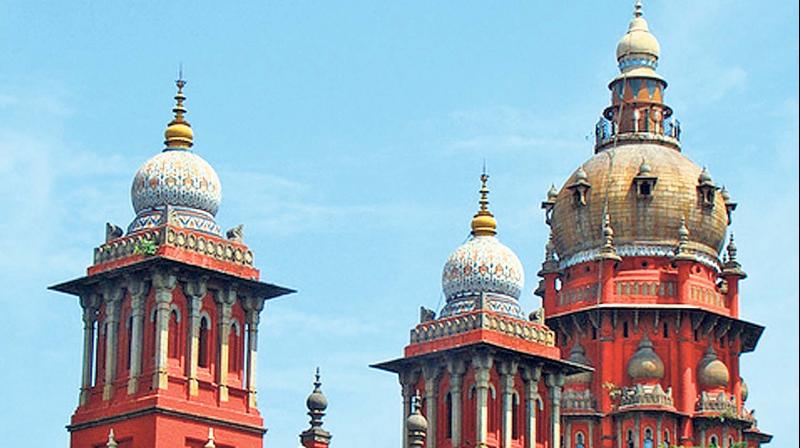Action against illegal religious structures in Kodai is valid: Madras high court
The bench said the prayer made in the petition was rather sweeping and omnibus in nature.

Chennai: Pointing out that if the law prescribes that something is to be done in a certain manner, it shall be done in that manner and not in any other manner, the Madras high court has dismissed as not maintainable, the petitions, which sought to prohibit the authorities from proceeding with the lock and seal and demolition of religious institutions situated within Kodaikanal in Dindigul District.
A division bench comprising Justices N.Kirubakaran and G.R.Swaminathan dismissed the petitions filed by T.Sekar, M.N.Abdul Raheem and S.Velusamy.
The bench said the petitioners represent the three major religions namely Hinduism, Islam and Christianity.
They have come together to make a common prayer. They want this court to restrain the authorities from taking any action against the religious structures that have been put up in violation of the law of the land.
The petitioners counsel pleaded that this court must adopt a pragmatic approach. A new master plan had come into force and therefore, the issue ought not to be approached in the light of the position that earlier prevailed. “We are conscious that after a gap of almost 26 years, a new master plan has been notified for Kodaikanal.
It is true that in the cases of buildings that have violated the zoning regulations, we permitted the applicants to submit a fresh application so that the same can be considered by the authorities in the light of the new master plan. That does not mean we have given our seal of approval to the new master plan. Though more than three months have been elapsed after the new master plan was notified, there was no formal challenge to it at the instance of any environmentally conscious citizen. But, we cannot apply the same yardstick in the case of religious structures that have been illegally put up. This is because there is a specific prohibition against the use of any site for construction of a building intended for public worship or religious purposes without the prior approval of the district collector”, the bench added.
The bench said the prayer made in the petition was rather sweeping and omnibus in nature. The petitioners’ case was not that they have put up the structures in question in conformity with law. They were not even praying that the procedure laid down in the law have to be followed before coercive action was taken. Instead what they were asking was that the authorities should be prohibited from proceeding with the exercise of locking and sealing and demolishing the illegally put up religious structures. If this court issues a mandamus as prayed for by the petitioners, it would be calling upon the authorities not to enforce the law, the bench added.

